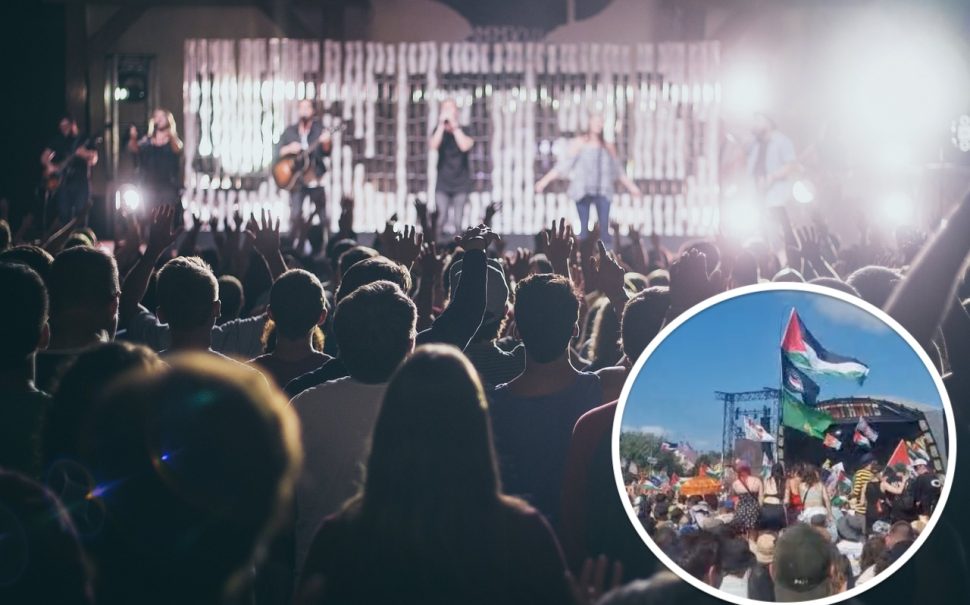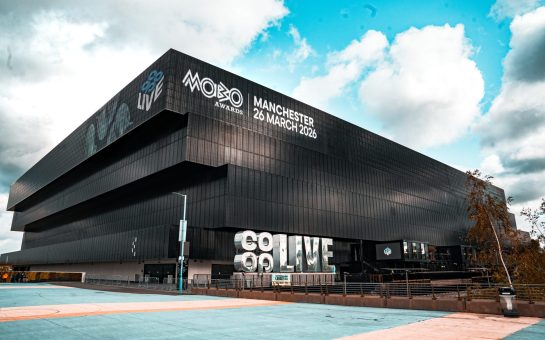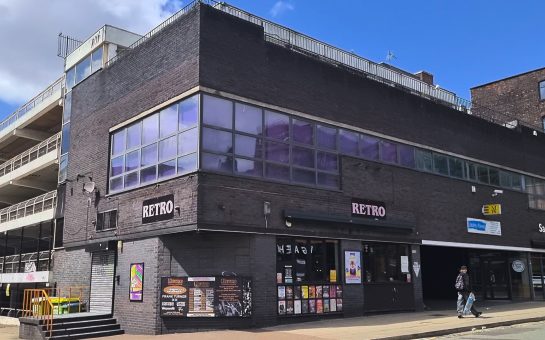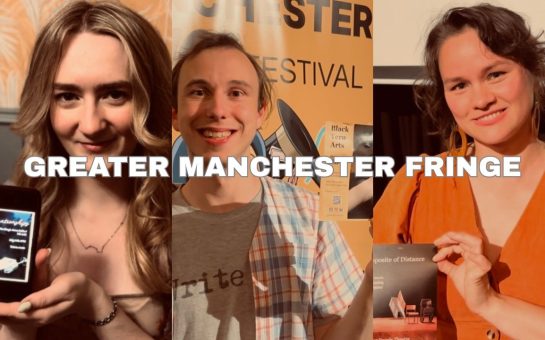Jay Plent asks why one band’s statement has become a lightning rod for a discussion that artists everywhere are desperate to have.
“Play your f*cking tunes and get off.”
This quote is Noel Gallagher in 2024, ranting in The Guardian about how ‘woke’ Glastonbury has got in recent years.
You know Glastonbury, the festival with the massive peace sign on top of its pyramid stage? The one that’s had Greenpeace as a partner for over 50 years?
Yeah, it’s gone woke now.
But while figures like Gallagher decry the merging of art and politics, some artists are using it as a means to cut through and discuss Palestine – and sometimes it takes a shock to get people talking.
It came to a head with an incendiary chant at Glastonbury last week.
Everyone and their dog was waiting to see what those rabblerousers Kneecap were going to say onstage, and how on earth the BBC was going to handle such behaviour.
The Irish rap group are currently under investigation for allegedly displaying a Hezbollah flag at a gig and attracted controversy initially when they made pro-Palestine statements at Coachella, another music festival.
What Kneecap did say onstage at Glastonbury, amongst other things, was that the BBC editor was going to have “a hell of a job” – how right they were.
It is ironic that the BBC Music team, so focussed on not broadcasting any explosive statements from Kneecap, missed the bomb Bob Vylan were about to drop on live TV.
The rap-punk duo set the media aflame when they howled “death to the IDF” onstage, inciting the crowd to repeat the chant.
A week on, the band have been dropped by their management, their US Visas revoked, and the BBC has been scrambling to explain its decision to broadcast their set live, with culture secretary Lisa Nandy calling BBC leadership into question.
Now, calling for anyone’s death on television, as you may know, is a big no-no for the BBC, and Ofcom.
A YouGov survey showed more than half of people think that it was wrong for the BBC to broadcast Bob Vylan’s ‘death to the IDF’ chant.
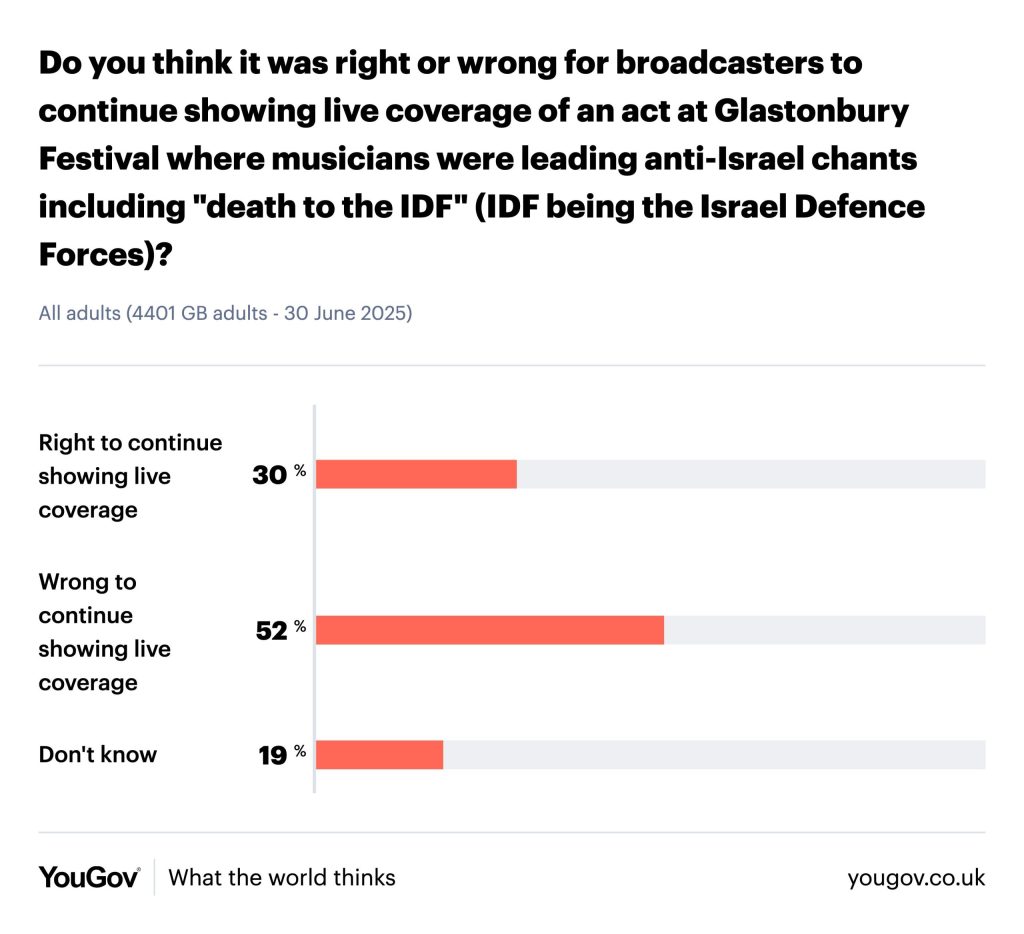
But Bob Vylan have cut through in a way that cannot be ignored, and the focus is on the extremity of the statement, not the reason for it being made at all.
Frontman Bobby Vylan said: “Sometimes you gotta get your message across with violence because that is the only language some people speak, unfortunately.”
I spoke to YNES, artist and founder of the Fair Play podcast, which aims to amplify working class creative voices.
As a long time fan of Bob Vylan, YNES believes they are the latest in a long history of artists being scapegoated, particularly in rap and punk where lyrics are used in court cases against them.
She thinks their chant at Glastonbury has been misinterpreted, and said: “I think it goes without saying that its been taken out of context.
“Music as a form of self expression can’t be taken out of context.”
“Protest is applauded and seen as a wonderful thing when it’s pretty and polite.
“I have nothing against them, but if you look at recent shows by Fontaines DC for example, they’re all speaking out but there’s a way they say it that’s polite, saying ‘free Palestine’ or putting a flag up.
“I find it weird how that show happened and there was no media coverage, no backlash, whilst Piers Morgan and Alex Jones are making videos about Bob Vylan.”
YNES’ point is an important one – more than a dozen artists made Pro-Palestine statements at Glastonbury – many sporting flags, starting chants, voicing their horror at the situation in Gaza.
But are we reading about a surge in artistic support for Palestine at Glastonbury?
No, we’re reading about one band who used the word ‘death’ in a statement that they themselves conceded was done to be provocative, to shine light on the issue, because the public has become desensitised to what is happening to Palestinians.
Here is a list of every statement I have been able to verify through social media, eyewitnesses and media reporting:
And that’s before we get into what people at the festival think.
Glastonbury festivalgoers have been taking to social media, talking about how shocked they were to see the media storm resultant from Bob Vylan.
I spoke to one of them, Quentin Wylie, of Manchester band GETNER.
He and many other attendees support the plight of Palestinians, with a heavy presence of Palestinian flags throughout the festival, and many of the bands he saw made pro-Palestine statements.
Speaking about how the media have covered Kneecap and Bob Vylan, he said: “They’ve tried to paint it as a few bad eggs, when so many musicians at the festival said something.
“Pretty much every artist we went to see spoke about Palestine, from Pyramid Stage Acts right down to the smallest bands.”
He argued that it is not two isolated bands making a fringe statement, this is a view held by many artists willing to express their horror at an ongoing humanitarian and moral crisis in Gaza.
Wylie thinks that Bob Vylan’s statement was meant to not be taken literally, and that if they had merely said ‘free Palestine’ there wouldn’t be controversy.
Treating Vylan’s chant as a serious, credible threat against the IDF, and not an aggressive, but exaggerated statement, shows a failing of understanding, he says.
“There’s no anger or aggression in the crowd, its peace, people want peace.”
He went on to say that people at the festival want to express their views and shouldn’t be scared to do that, adding that the clampdown on peaceful protesting through proscription of pro-Palestine organisations is driving people’s need to speak out at music events.
“It’s a perfect storm.
“I feel like the only place where people feel safe to protest is at a gig.
“I would be scared to go to a protest now.”
Artists and public alike want to make their views felt, and they shouldn’t be scared to do so.
But there are consequences to speaking out where the industry is concerned.
Kneecap were dropped as performers at TRNSMT Festival, playing a sold-out show in Glasgow instead, and Bob Vylan were dropped as Radar Festival headliners in Manchester.
It is worth noting that Radar festival said they did not want to remove Bob Vylan but came under pressure to do so from external sources.
I spoke to Manchester based label owner, Michael Webster, who runs Bread Records and hundreds of events in Manchester every year, comprising gigs, open mic nights, and launch shows.
Would he drop artists booked to play his events that made controversial statements?
“I can understand why a promoter would feel under pressure from a venue.
“At my events people should be allowed to voice their opinions, and censoring those views goes against the nature of grassroots music and the Manchester scene.”
He added that whilst Bob Vylan’s statement may not have been the best approach on a stage, the debate on Israel and Palestine has been going on for seventy years, and musicians overwhelmingly support Palestine and other humanitarian issues.
Although Webster says he has previously barred people from attending his events for racism or inappropriate behaviour, he notes that talking about Palestine would not be one of those reasons.
“If you go around suppressing all the musicians who support Palestine there won’t be many left.”
A culture of silencing seems to be growing.
MPs are wading in and telling musicians to stay in their lane and leave the politics to the professionals.
Whether its Kier Starmer saying Kneecap at Glastonbury was “not appropriate” following Mo Chara’s terror charge, or Nigel Farage taking to social media to urge the same festival to keep out of politics, it seems that the culture wars, so decried by Labour MPs when in opposition, have become talking points for politicians left, right and centre.
But if it is so vital that politics be kept separate from music, why do politicians and organisations keep wading into debates about what bands should play where, and when musicians should make political statements?
Laura Rose Layden is a theatre maker based in Manchester, who is currently developing a play to take to this year’s Edinburgh Fringe.
She told me how speaking out as an artist is becoming increasingly tied to the success of their art.
She said: “Art in itself is inherently political.
“It was nice to see people at Glastonbury using their platform, I thought it was a microcosm for the artistic world as it is now, whether its people completely shutting down political discussion at their show, or openly talking about it.”
Layden said that she sees why people have had a visceral reaction to Bob Vylan’s chant at Glastonbury but added that organisations need to allow artists to make such statements.
“Organisations are so afraid of being seen as controversial and losing funding.
“It begs the question – are organisations trying to keep themselves alive by doing less political art?
“Art is changing who its audience is for based on class – when theatre only becomes accessible to higher classes, theatre will start catering to those people.
With artists being cut from bills or dropped by management, does losing opportunities for speaking out concern her?
“It is something that I think about.
“I do have a little bit empathy for people who can’t speak out because of those constraints.
“But I think I have such a strong sense of justice that I will fight to find opportunities that cater to this, and more things are being built because of people banding together, it’s about the connections you meet and what you create – there is still room for it, it’s just more difficult now.
“And there are still some corporations fighting the good fight.”
Artists are at risk or being silenced for taking a stand on an issue.
If a segment of the population that large is unable to voice their views, what does that mean for peaceful protest?
Wanting artists to remain a-political in a world facing so many challenges is futile.
For example, Amnesty international recently published an open letter signed by 120 artists calling on the Prime Minister to do more to protect Palestinians in Gaza.
Whether those words are well-received or not, it is vital that we keep hearing them, and if it cuts through the static to make people talk, think and debate, more’s the better.
Image: Pixabay, with insert from photo by Quentin Wylie.
